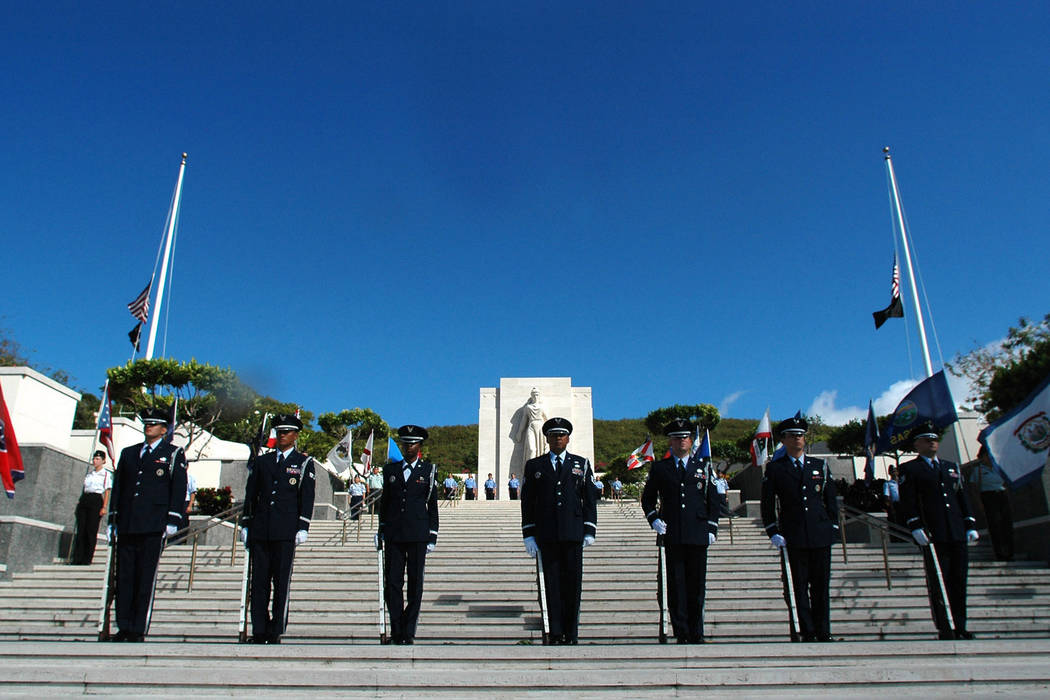COMMENTARY: The big picture of Memorial Day
Memorial Day had its origin in Decoration Day following the Civil War, but it has been an official federal holiday to honor those who lost their lives while serving in the armed forces of the United States only since 1971.
Memorial Day is also an occasion to associate those who died with the just causes for which the United States was willing to go to war. World War I, World War II, Korea and Vietnam were conflicts where freedom was clearly at stake. The post-9/11 engagements in Afghanistan, Iraq and Syria remain a bit more complicated, being associated with responses to abuse of power in divided countries and to transnational radical Islamist terrorism.
While remembering those who died in defending U.S. interests in conflicts large and small is a central purpose of this holiday, Memorial Day takes on its deepest meaning when we connect it with our roots.
Americans were unique in sacrificing their treasure and giving their lives to found the first country in history establishing that all people have natural rights that come from God rather than from rulers or government. The Declaration of Independence affirmed the equality of all people and that they were endowed with unalienable rights to life, liberty and the pursuit of happiness.
Thus, when Americans sacrificed their lives in military service, it was not just to defend the United States, but it was also to uphold the natural rights and spiritual values associated with the nation’s founding and which remain exemplary and true for all time and people.
There were times and places in human history when there were nation-states of cultural achievement, virtue and efflorescence — such as in Periclean Athens, in the Florence of the Medicis and in England of Elizabeth and Shakespeare. But none was founded the way America was — that is, by a collection of human geniuses who prayerfully approached drafting a constitution that would mitigate corruption and abuse of power while also protecting the citizens’ unalienable God-given rights and enabling them to rise to levels closer to the divine image in which all were created than they would have under any government previously conceived.
Yet another significant part of celebrating Memorial Day is associated with the example set by Americans in how they treated their vanquished foes.
The respect that Gen. Douglas MacArthur and the occupying American forces displayed after Japan’s surrender amazed the people, who assumed the victorious Americans would execute their beloved emperor and plunder and treat them in ways similar to what Japanese soldiers did to those they had conquered in East and Southeast Asia.
The courtesy, helpfulness and respect shown by the Americans won the Japanese people’s trust and acceptance of the occupation’s policies that forced fundamental change on the country — rewriting the constitution and laws and reorganizing the ownership of land and business to provide more fairness and opportunity.
In Europe after armistice, the war-indebted United States launched the Marshall Plan that gave some $125 billion in current dollar value in economic support to help reconstruct war-devastated regions in Western Europe.
Major initiatives included rebuilding industry — even giving the Europeans a leg up on the United States with the building of state-of-the-art factories and facilities that were, in many cases, more efficient than what then existed in this country.
In sum, Memorial Day means more than remembering those who died in military service to the country. It means connecting with a heritage that began with a courageous and faithful group of founders, who risked their lives for the birth of freedom and the establishment of America as a “shining city on a hill.”
It also means remembering what made “the greatest generation,” who — after forfeiting so many lives to ensure victory for the Allied nations in World War II — then sacrificed more to rebuild and preserve the independence of its former enemies.
Scott Powell is senior fellow at the Discovery Institute in Seattle. His father enlisted in the Army after Pearl Harbor and recently celebrated his 95th birthday.













